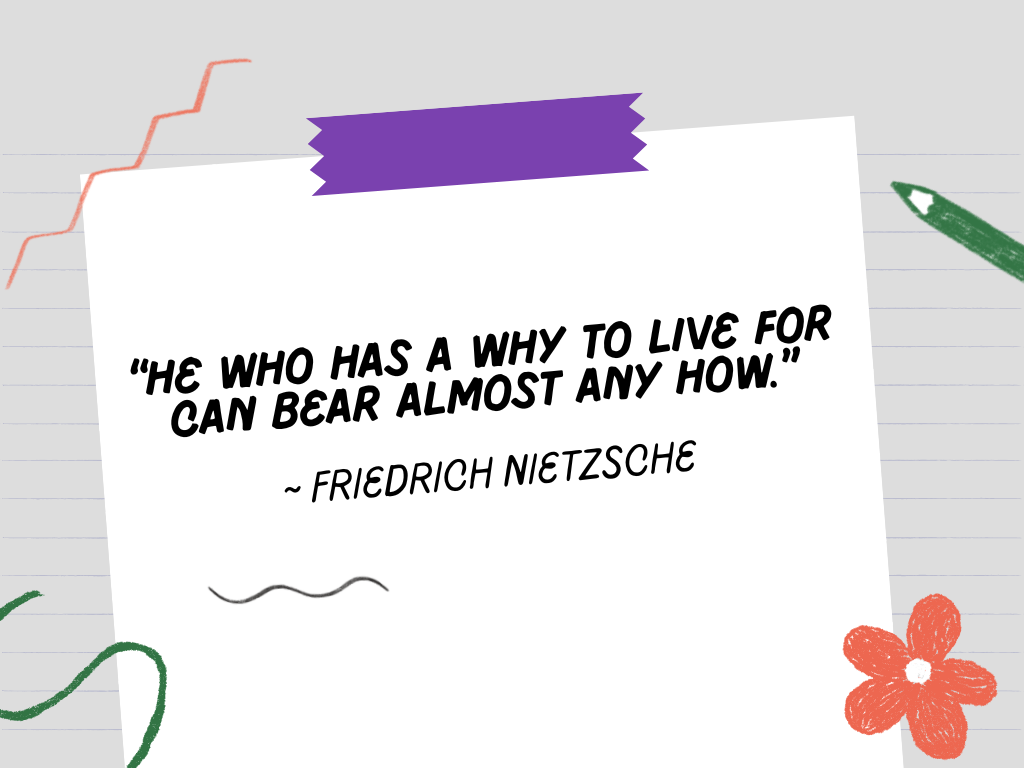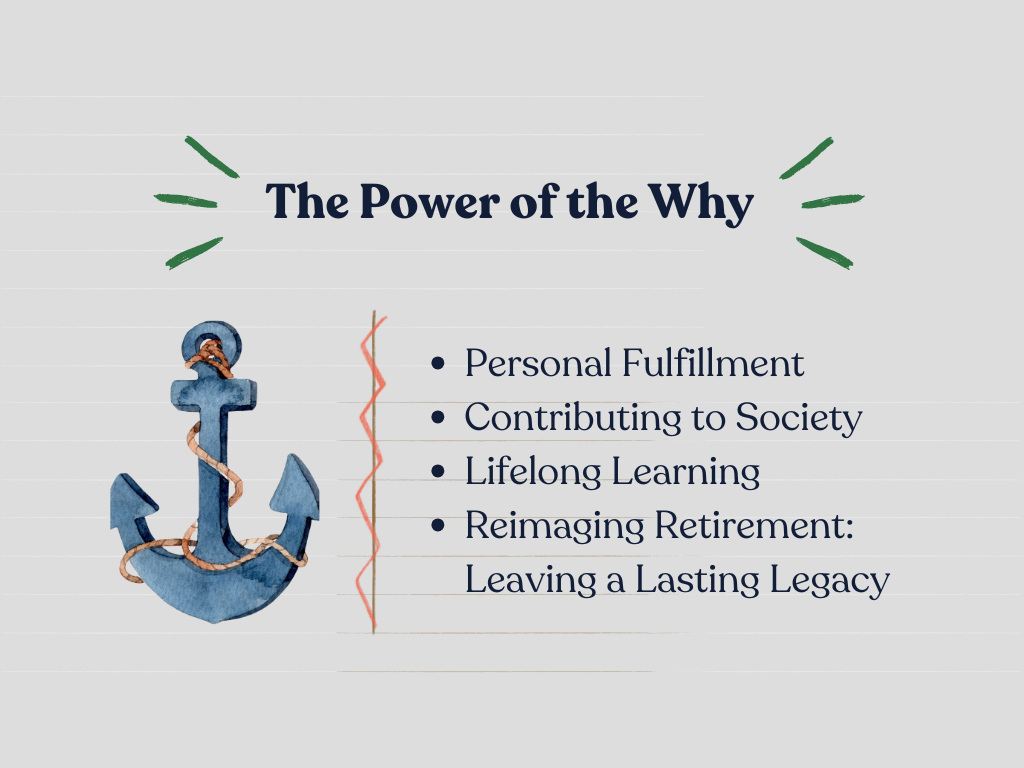Chronicles of a Vintage Boomer PhD Student – Part 2: Knowing Yourself, the Why, and the Benefits
Vintage Boomer PhD Student - Part 2: Knowing Yourself, the Why, and the Benefits
“He who has a why to live for can bear almost any how.” – Friedrich Nietzsche
As I continue my PhD journey, I’ve come to realize that success hinges on two key factors: knowing yourself and staying deeply rooted in your why. For this Vintage Boomer, the path is as much about self-discovery as it is about contributing to a greater good. And along the way, I’ve uncovered unexpected benefits that make the effort more than worthwhile.
Knowing Yourself
Embarking on a PhD at 64 wasn’t a decision I made lightly. It required understanding who I am—my strengths, motivations, and limits. This self-awareness has been my compass through the ups and downs of the journey. I want to highlight four pointers.
“He who has a why to live for can bear almost any how".” ~ Friedrick Nietzsche
Recognizing My Drivers
I’m not chasing career promotions or accolades. As stated in Part 1, vanity is not my vision. My purpose is deeply personal: to explore minimalism as a sustainable lifestyle and contribute to a better future for generations to come. This clarity keeps me grounded when the challenges pile up—yes, even when a stubborn microfiche machine nearly threatened me to quit before I even began!Leveraging My Strengths
Decades of life experience, resilience, and a seasoned perspective aren’t just advantages—they’re my superpowers. They allow me to approach challenges with depth and nuance that younger peers may not yet have.Finding Balance
Balance at this stage of life looks different. Without daycare pickups or soccer practice runs, I’ve embraced a rhythm that lets me pace myself—pushing when necessary, and recharging when needed. I’ve become intentional about saying “no” and setting clear boundaries at work to keep burnout at bay. And guess what? It works!Integrating Wisdom
My research weaves together a tapestry of insights—drawing from ancient Chinese philosophy, Indigenous wisdom, and cultural influences from both the Far East and North America. This synergy of perspectives creates a richer, more cohesive narrative of the human experience. At its core, it reminds us of a simple truth: our basic human needs are fundamentally the same. To truly improve our shared human condition and serve all of humanity—not just a privileged few—we must embrace wisdom as a guiding force for meaningful change.
Knowing Yourself
The Power of the Why
The why is my anchor. It keeps me grounded amidst deadlines, doubts, and the occasional existential crisis, such as, “Why am I doing this at this age?”
Personal Fulfillment
Studying minimalism isn’t just academic—it’s transformative. It reshapes my values, deepens my spiritual connection, and brings me peace. The books I read, the people I meet, and the stories I hear remind me of life’s deeper meaning. This is my quest for meaning.Contributing to Society
My research is my way of giving back—a chance to inspire conscious choices that foster sustainability for future generations. It’s about continuing the movement that once nurtured and inspired me, for which I am deeply grateful. As Indigenous scholar Shawn Wilson reminds us, research done right doesn’t just inform—it transforms. It changes the researcher, and everyone involved in the process (Wilson, 2008, p. 135).Lifelong Learning
Maya Angelou once said, “Now that I know better, I do better.” This resonates deeply as I challenge old ideas and embrace new ones. Lifelong learning keeps my mind sharp, and my spirit engaged. My late father used to tease me about my endless curiosity—he could never quite understand why I had so many interests. I stayed late at school for choir, learned to play guitar, joined Girl Guides to master first aid, took Japanese lessons, and even baked cookies after school. I wonder what he’d think now, seeing how my love of learning has only grown more intense with age.Reimagining Retirement: Leaving a Lasting Legacy
This journey feels like a sequel to my earlier work. Ten years ago, I wrote Reimagining Your Retirement: How to Live Life to Its Fullest and Leave a Lasting Legacy. Today, I’m not just revisiting those principles—I’m living them. Retirement is a season ripe with growth, purpose, and legacy-building. If I’m as fortunate as my mom, I could have thirty more years to continue building that legacy.
The Power of the Why
The Benefits of Being a Vintage Boomer PhD Student
While the odds and challenges are real, the rewards are far greater. Here’s what I’ve gained:
Enhanced Cognitive Function
Staying mentally active through research, writing, and problem-solving feels like a workout for my brain. Each challenge sharpens my focus and strengthens my ability to synthesize complex ideas.
Much of this stems from crystallized intelligence—the accumulation of knowledge, skills, and life experiences that improves with age. While younger students may excel in fluid intelligence (speed and problem-solving in novel situations), I draw on a deep reservoir of wisdom and understanding, which adds nuance and perspective to my research.
This balance of intellectual strengths has been key to my success, showing that the mind, like the body, thrives when engaged and challenged.
A Stronger Support Network
From academic mentors to family and friends, I’ve built a team that cheers me on. Their encouragement reminds me that I’m never in this alone.A Renewed Sense of Purpose
This PhD journey has reignited my sense of direction. It’s given me a meaningful project to pour my energy into—a legacy I hope will inspire others.Living Proof That It’s Never Too Late
Pursuing a PhD in my 60s is my way of saying, “Why not?” If I live to 100, I’ve got 35 years ahead to keep growing! Age is no barrier to ambition—it’s an invitation to rewrite the script.
The Benefits of Being a Vintage Boomer PhD Student
Wrapping It All Up
This PhD journey is more than academic—it’s a transformative experience that deepens my understanding of myself, my purpose, and the impact I want to have on the world.
To my fellow Boomers and beyond, I leave you with this:
What’s your why?
What vision guides your path?
Whatever it is, remember—there’s no expiration date on dreams. Let’s step into 2025 with bold goals, fresh perspectives, and the courage to defy the odds. Let’s go! 🚀
Reference
Wilson, S. (2008). Research is ceremony: Indigenous research methods. Toronto: Brunswick books.





